Introduction & Analysis
This collection of open-source English-language news articles published over the past week highlights significant events and issues concerning Myanmar.
The sources indicate a deteriorating safety and security situation in the country, particularly in the border regions. This decline can be attributed to armed conflict, criminal activity, and persistent political instability.
Border Region Instability:
Scam Centers and Criminal Activity: The presence of scam centers run by Chinese nationals has led to interventions by Karen rebels, who have issued ultimatums for them to leave areas under their control. These centers are involved in illegal online gambling, casinos, and other scams. Thailand has cut off electricity, fuel, and internet to several border areas in Myanmar to combat these scam operations. This action has led to increased crackdowns on fuel smuggling into Myanmar.
Armed Conflict and Displacement: Escalating artillery attacks by the Myanmar military in regions like Nyaung Shwe have forced entire villages to flee, resulting in a humanitarian crisis with shortages of food and shelter. Restrictions on travel, particularly via waterways in the Inle region, exacerbate the difficulties for those trying to escape the violence.
Junta Crackdowns and Financial Exploitation: The Myanmar junta is imposing heavy financial burdens on residents in areas like Kunhing Township, demanding payments for military expenses, which are seen as extortion. The junta is also reportedly using the name of the Restoration Council of Shan State (RCSS/SSA) to justify these actions, which the RCSS/SSA denies.
Actions by Ethnic Armed Organizations (EAOs): Some EAOs are taking action against scam centers to regain the trust of the Thai government and restore access to essential supplies. The Democratic Karen Buddhist Army (DKBA) has stated it will take action to help people regain power, internet, and fuel supplies.
Impact of Thailand's Actions:
Strained Relations: Thailand's cutting off of power and internet to areas in Myanmar has resulted in protests and has had broad economic impacts, including rising fuel prices and shortages in eastern Shan State.
Differing Perspectives: While some, like former Thai Prime Minister Thaksin Shinawatra, have stated that Thailand will resume the supply of power and internet once criminal networks are eliminated, the Thai government insists its priority is to protect Thais from call-center gangs and will not be swayed by protests.
Chinese Response: China has expressed appreciation for Thailand's measures against scam centers, as these scams often target Chinese citizens.
Broader Security and Political Concerns:
Civilian Targeting: The junta has been deliberately targeting civilians, leading to a high number of internally displaced persons.
Forced Conscription: The junta's activation of conscription laws is causing widespread fear and displacement.
Economic Instability: Myanmar's economy has been in decline since the 2021 coup, leading the junta to extract resources from migrant workers, requiring them to remit a portion of their wages through official channels at unfavorable exchange rates.
International Response: The US has extended its national emergency declaration on Myanmar, citing the threat to US national security and foreign policy. There are also calls for the US to impose sanctions on the Myanma Economic Bank (MEB) to limit the junta's access to financial support.
Conflict
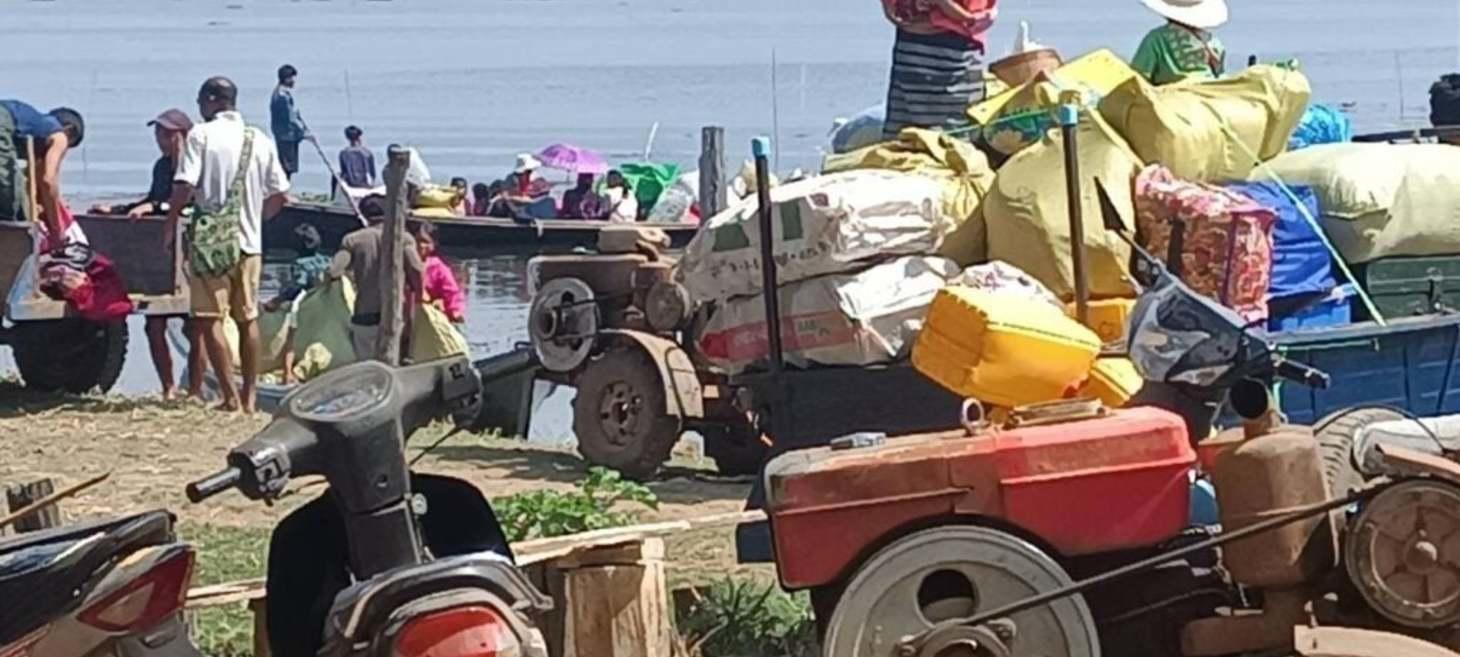
Entire Villages Forced to Flee as Myanmar Military Escalates Artillery Attacks in Nyaung Shwe
Due to escalating artillery attacks by the Myanmar military junta and the Pa-O National Army (PNA) militia, a humanitarian crisis has unfolded in Nyaung Shwe Township, Southern Shan State, as of February 2025. Villagers from six communities, including Nan Tok, Eain Mu, Nyaung Lay Pin, Ye Pu, Paya Taung, and Nwe Nwe, are fleeing their homes. Many are leaving with few possessions, facing danger, uncertainty, and shortages of food and shelter. Restrictions on boat usage have complicated evacuation efforts in the Inle region. As of February 11, 2025, the military and PNA have conducted 54 artillery operations since January 1, resulting in civilian casualties and injuries. The displaced populations urgently need shelter, food, and medical assistance, but significant aid from local and international organizations has yet to materialize.
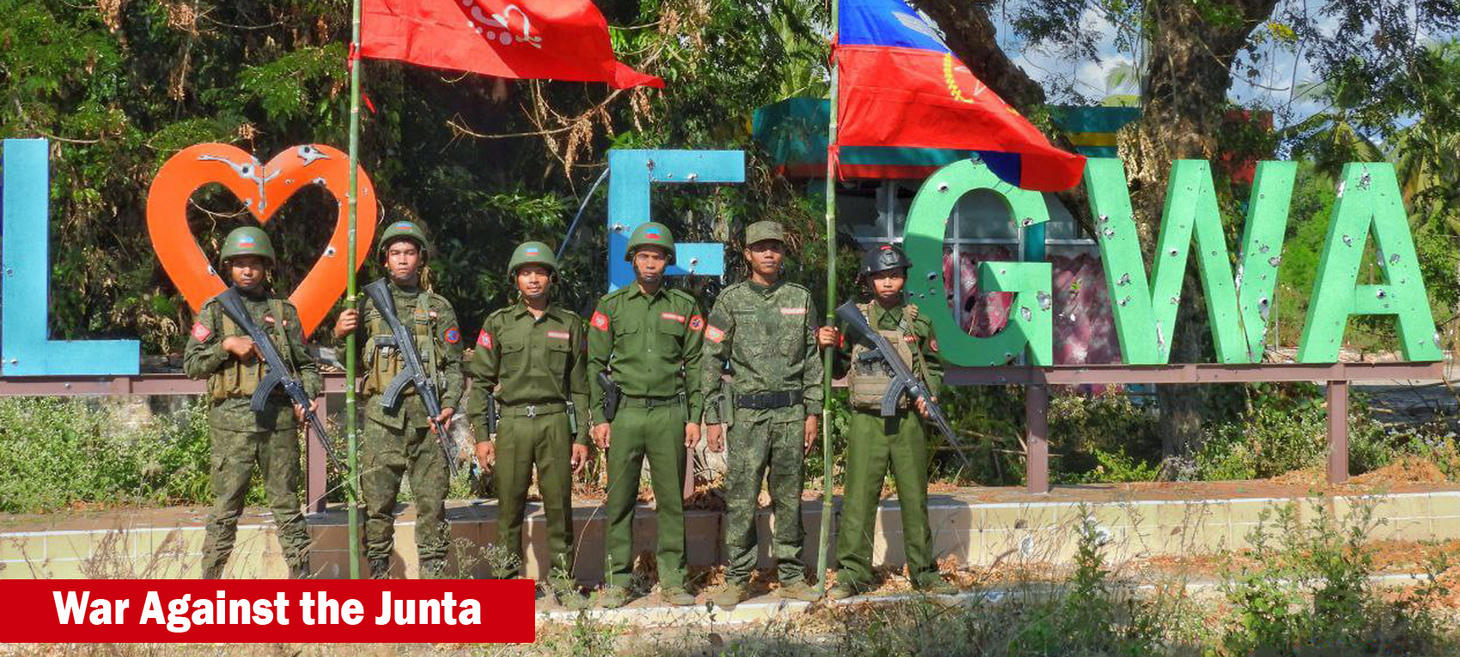
Myanmar Junta’s Western Flank Collapsing After December Defeats
In December 2024, armed anti-regime groups in Myanmar, including the Arakan Army (AA), made significant territorial gains by liberating six townships and capturing a junta regional command headquarters. The AA seized four townships in Rakhine State and took control of the Western Military Command. Overall, the AA has gained control of 14 out of 17 townships in Rakhine State and one in Chin State since November 2023. These gains have allowed the AA to expand its operations into neighboring regions such as Magwe, Bago, and Ayeyarwady. The Chin Brotherhood also liberated two townships in southern Chin State with support from the AA. Clashes occurred throughout the country in December, except in Ayeyarwady Region and Naypyitaw. During the conflict in December, 1,437 regime troops, 42 resistance members, and 34 civilians were killed, with an additional 173 civilians killed in targeted attacks, and 1,995 civilians were arrested by the junta.
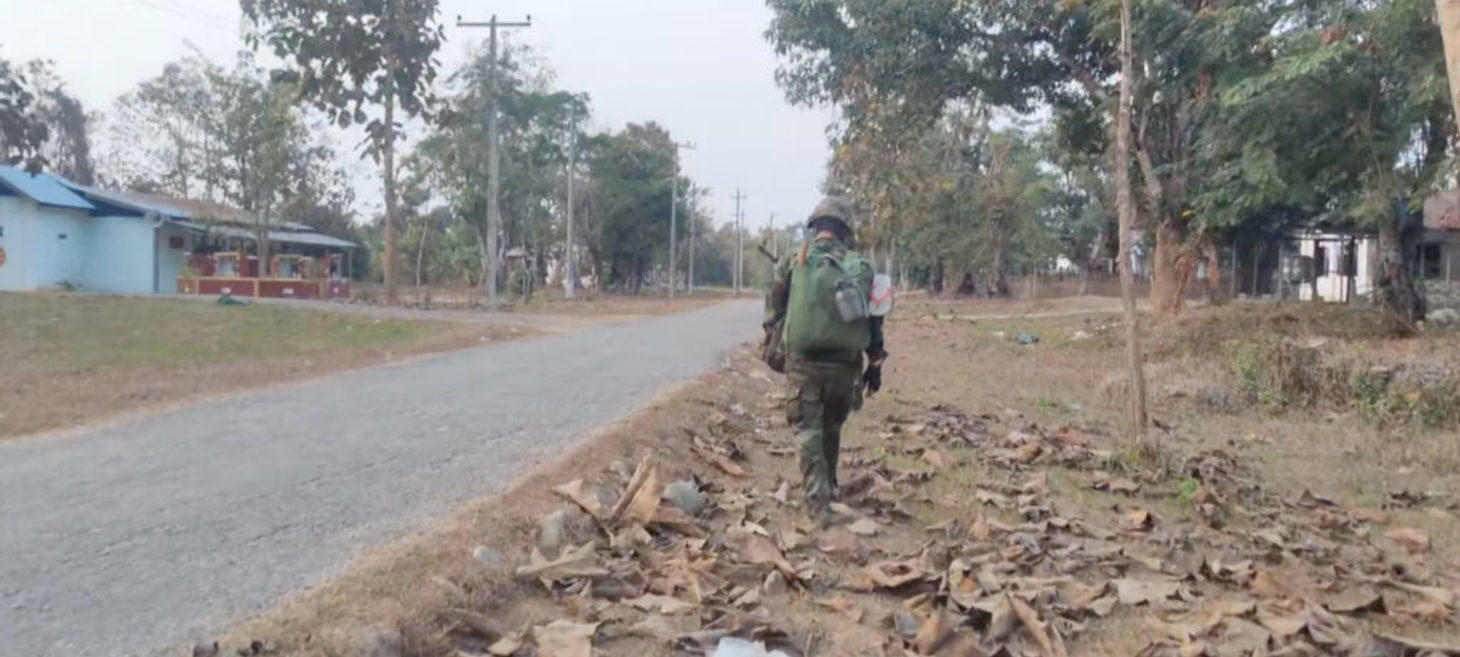
Kachin Rebels Seize Tank Base from Myanmar Junta
The Kachin Independence Army (KIA) and allied forces have reportedly captured the junta’s Tank Battalion 5014 in Bhamo town, though the KIA has not confirmed this due to security concerns about potential airstrikes. Videos circulating online show KIA troops inside the captured battalion. Bhamo, located on the Irrawaddy River, is now encircled by resistance fighters, which has forced the military to airlift supplies. Junta troops have retreated to the nearby 21st Military Operations Command, where fighting has intensified, and the military is increasingly using drone attacks. The KIA and its allies began their assault on Bhamo and Mansi in December, capturing Mansi after a month of fighting and defeating Armored Battalion 7006 in Bhamo at the end of January. Thousands of civilians have fled the fighting, with some injured during the evacuations.
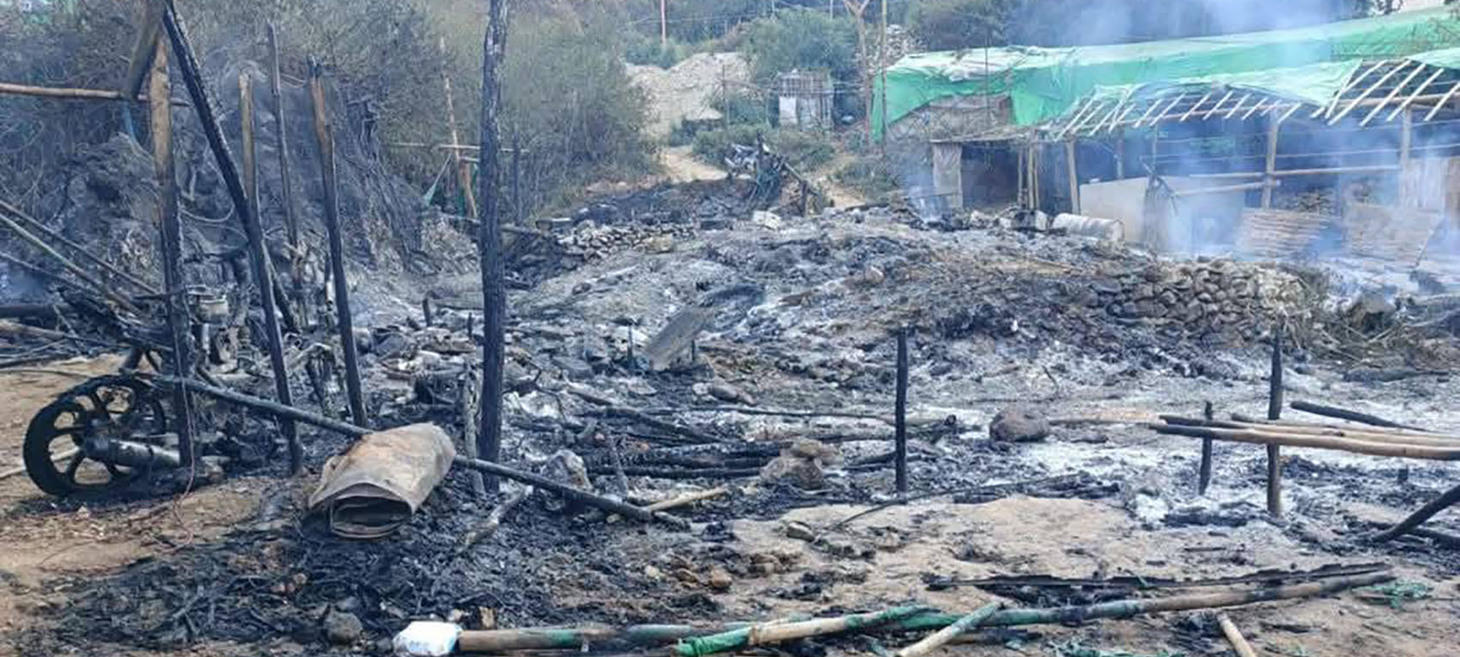
Five Killed as Junta Bombs Myanmar’s Rebel-Held Ruby Hub
On February 10, 2025, the Myanmar junta launched an airstrike near a ruby mine in Mogoke Township, Mandalay, controlled by the Ta’ang National Liberation Army (TNLA), resulting in at least five civilian deaths and 19 injuries. The Y-12 aircraft dropped approximately 20 bombs in the western part of the township at around 1 a.m. Monday. The TNLA and allied groups seized control of Mogoke Township in July 2024 and are setting up their own administration, but the township is frequently targeted by junta airstrikes. Mogoke is strategically important due to its location and ruby mines, which account for 90 percent of Myanmar’s ruby production. The TNLA has suspended large-scale mining but allows individual residents to continue digging for gems. According to the TNLA, all five people killed in the airstrike were men, and the attack left 14 other men and five women with severe injuries, all of whom were civilians. Since the beginning of 2025, the junta’s military has conducted airstrikes in TNLA-controlled areas of northern Shan State, killing at least 13 civilians and severely injuring 26 others in January alone.

Cut Off Myanmar Junta’s Financial Lifelines, Experts Urge
A new report by the Special Advisory Council for Myanmar (SAC-M) emphasizes cutting off the Myanmar junta’s funding to weaken its power and pave the way for a democratic Myanmar. Economist Sean Turnell, a former advisor to Daw Aug San Suu Kyi, suggests broader international sanctions targeting the Central Bank of Myanmar (CBM) to restrict international transactions, global blacklisting of state-owned and crony banks to cut off access to international markets (including arms procurement), and prioritizing sanctioning the Myanmar Economic Bank (MEB). The report also recommends secondary sanctions on foreign institutions dealing with the junta and designating all loans and debts accumulated by the junta as "odious debt". Further recommendations include seizing military-owned properties and assets, sanctioning those doing business with military-owned entities, and redirecting frozen assets to legitimate opposition groups.

Captured Junta Officer Says Demoralized Myanmar Military Will Lose ‘Everywhere’
A Myanmar regime military officer, Lieutenant Colonel Kyaw Kyaw Thet, who commanded Strategic Team 992, surrendered to the Arakan Army (AA) after facing defeat in battle in Ngape Township, Magwe Region. The officer stated that the Myanmar military suffers from poor training, low morale, and weak combat skills, leading to continued defeats. Strategic Team 992, which initially comprised over 360 soldiers, underwent specialized combat training before deploying to the Padan Village-tract area. Aftermath AA forces attacked, the team suffered heavy casualties, with approximately 100 soldiers killed and another 100 injured in the initial clashes. Ultimately, Lt-Col Kyaw Kyaw Thet, along with about 20 remaining soldiers, surrendered to the AA. The AA, along with its allies, has been expanding its operations, seizing territory in Rakhine State and advancing into other regions.
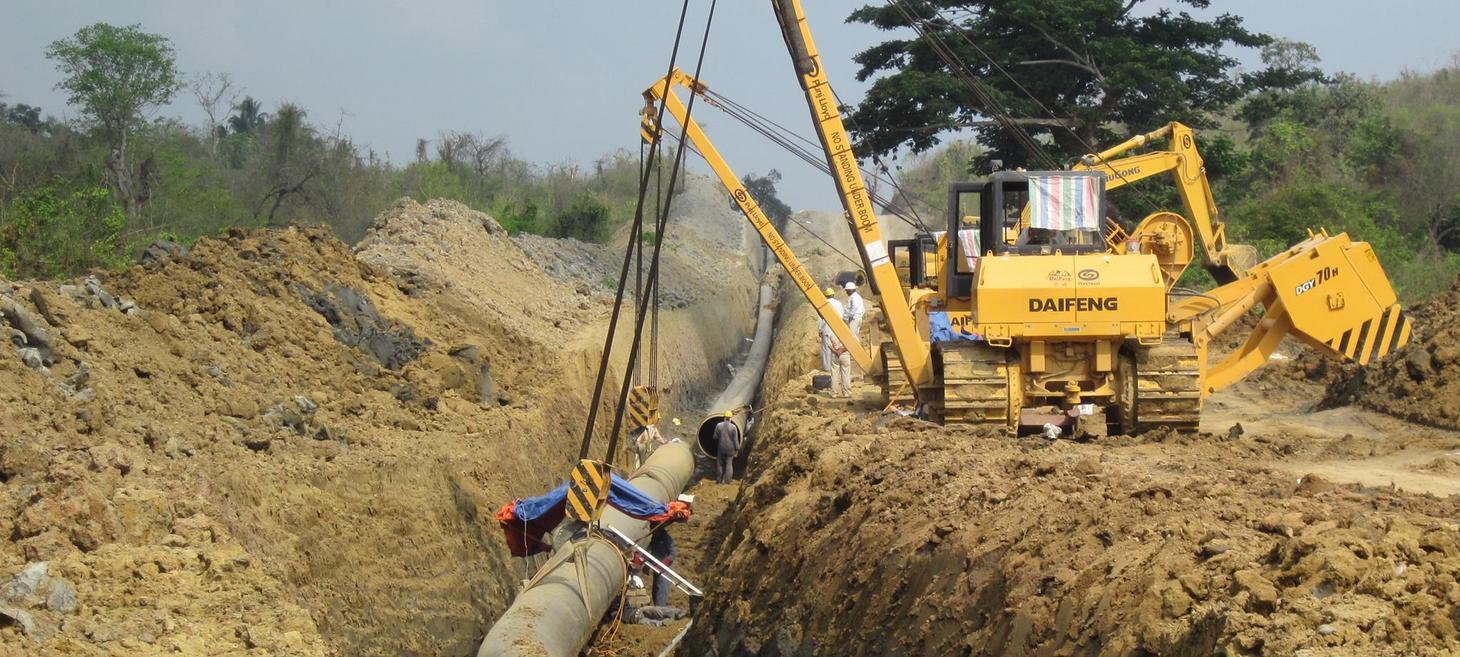
Myanmar’s resistance tightens grip on key energy corridors
The Brotherhood Alliance's Operation 1027 significantly altered the conflict in Myanmar, shifting territorial control away from the junta. This offensive, carried out by the Myanmar National Democratic Alliance Army (MNDAA), the Ta’ang National Liberation Army (TNLA), and the Arakan Army (AA), has diminished the regime’s capacity to protect oil and gas pipelines that benefit China. These pipelines, largely funded by Chinese investment, run from Shan State through Rakhine State, Magway, and Mandalay regions. The resistance's tightened grip on these key energy corridors has implications for both the junta's revenue stream and China's interests in the region.
Conscription

Myanmar’s Forced Conscription in Numbers
One year after Myanmar's junta activated its conscription law, thousands of young people are being forced into military service amidst ongoing conflict, leading to widespread fear and displacement. The conscription law mandates that all men aged 18-35 and women aged 18-27 must serve. This infographic story breaks down the key numbers behind the conscription law, including the number of people drafted. The Irrawaddy, founded in 1993, is a leading source of reliable news, information, and analysis on Burma/Myanmar and the Southeast Asian region. The Irrawaddy strives to preserve press freedom and is an independent news media group, unaffiliated with any political party, organization, or government.
Crime & Narcotics
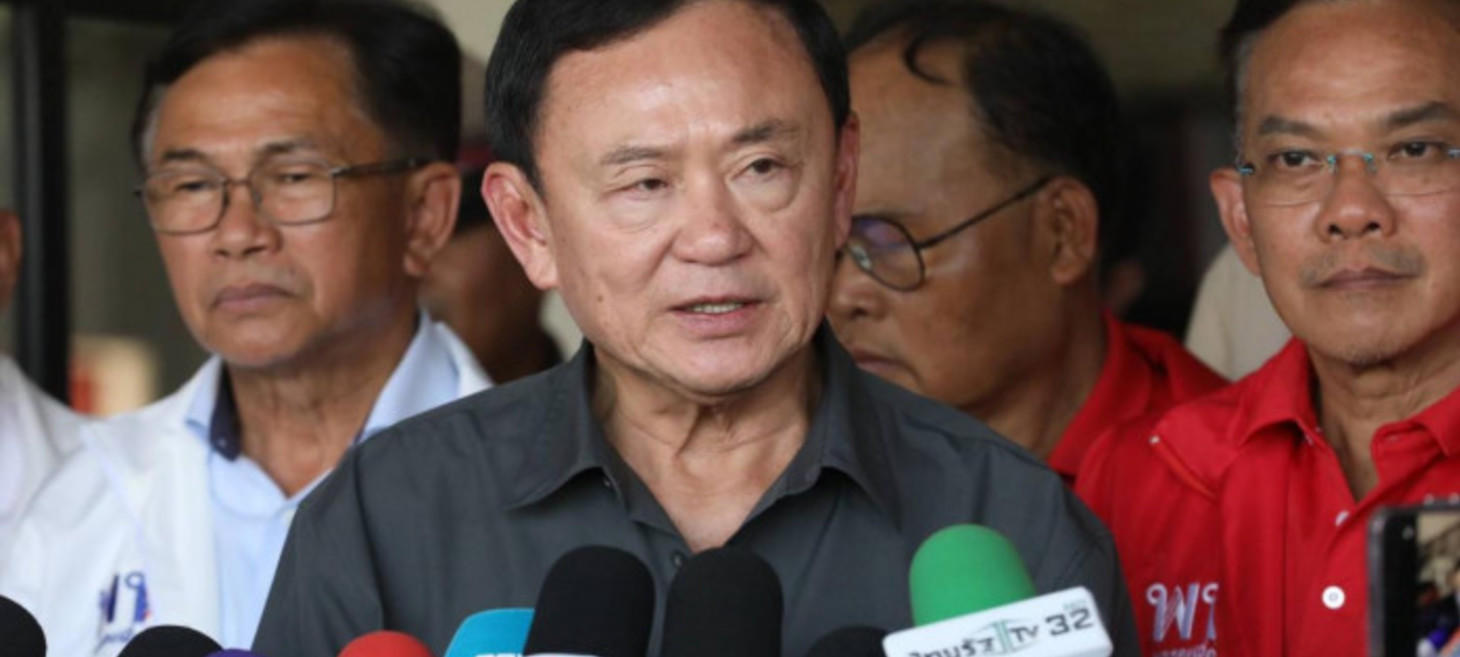
Thaksin urges Myanmar communities to boot out scam centres
Former Thai Prime Minister Thaksin Shinawatra has called on communities in Myanmar to reject call-center scam operations, stating that Thailand will restore power and internet services to the country once these criminal networks are eliminated. Thailand has already cut off electricity, internet, and fuel supplies to five Myanmar border areas suspected of housing these scam centers. Myanmar is now seeking to buy electricity from Laos. Thaksin also mentioned a major call center scam operating in Cambodia's Poipet city, and that the owner of the building is a Thai national, whose nationality may be revoked. The Thai government considers scam centers a national security issue, as they are run by criminal gangs and staffed by trafficked foreign workers who defraud others.
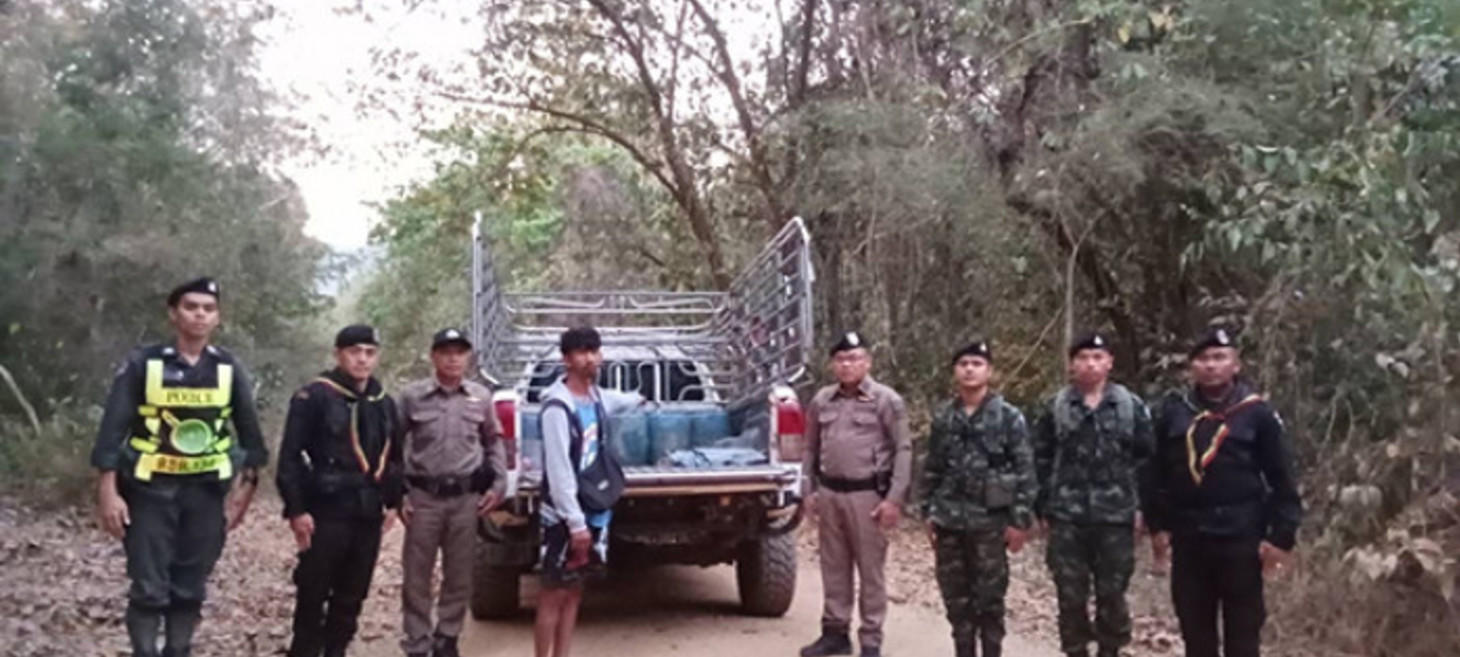
Karen rebels give Chinese gangsters deadline to leave
Karen rebels, specifically the Democratic Karen Buddhist Army (DKBA), have given Chinese nationals operating illegal businesses such as scam centers in areas under their control until the end of February to leave. This ultimatum was issued after Thailand cut off the supply of electricity, petrol, diesel, and internet signals to Phayathonezu and four other border locations in Myanmar. The DKBA emphasized the importance of creating trust with the Thai government, hoping that Bangkok would reconnect the power and resume fuel deliveries. Meanwhile, Thai authorities have intensified the crackdown on fuel smuggling into Myanmar, with a Thai driver arrested for attempting to smuggle diesel to Phayathonezu in Kayin state. The ban on power and fuel has affected several areas in Myanmar, but some buildings housing online scam operators have their own generators.
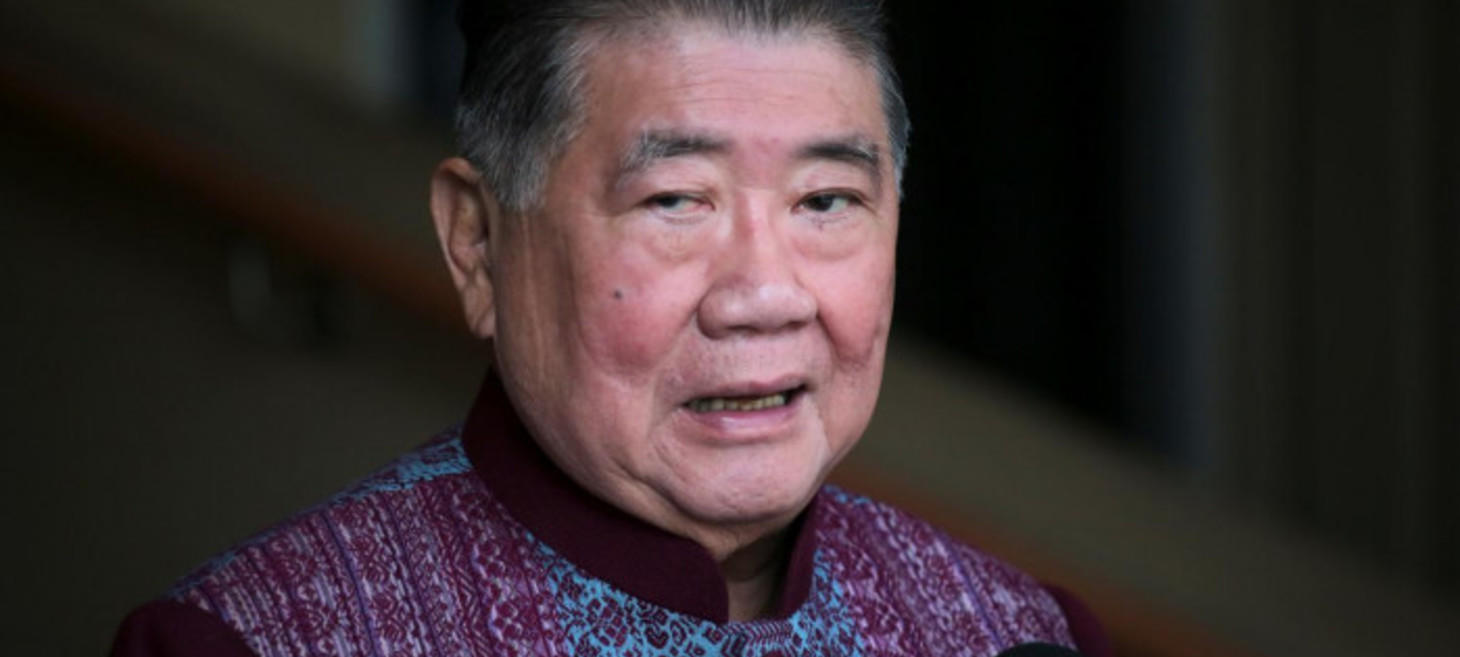
Myanmar to stay in the dark
The Thai government is prioritizing the protection of its citizens from call-center gangs and has taken measures to cut off power, fuel, and internet services to five border areas of Myanmar where these criminal networks are based, including Tachileik, Myawaddy, and Payathonzu. Despite protests against these actions, the government remains firm in its decision, focusing on solving the problem facing Thailand. While communities in the dark express their frustration, there are reports suggesting that entertainment venues and scam centers possess their own generators, allowing them to remain operational. Thai authorities are also cracking down on fuel and solar panel smuggling to these areas. National Telecom (NT) has cut international communication signals to these border areas, with further actions possible. Additionally, a crackdown is underway along the Thai-Cambodian border to dismantle cross-border call center gangs operating from Poi Pet, targeting SIM boxes used to make internet calls appear to originate from within Thailand. Simultaneously, the Myanmar military has conducted raids on illegal online gambling operations in Lashio, Shan state, arresting multiple individuals and seizing equipment.
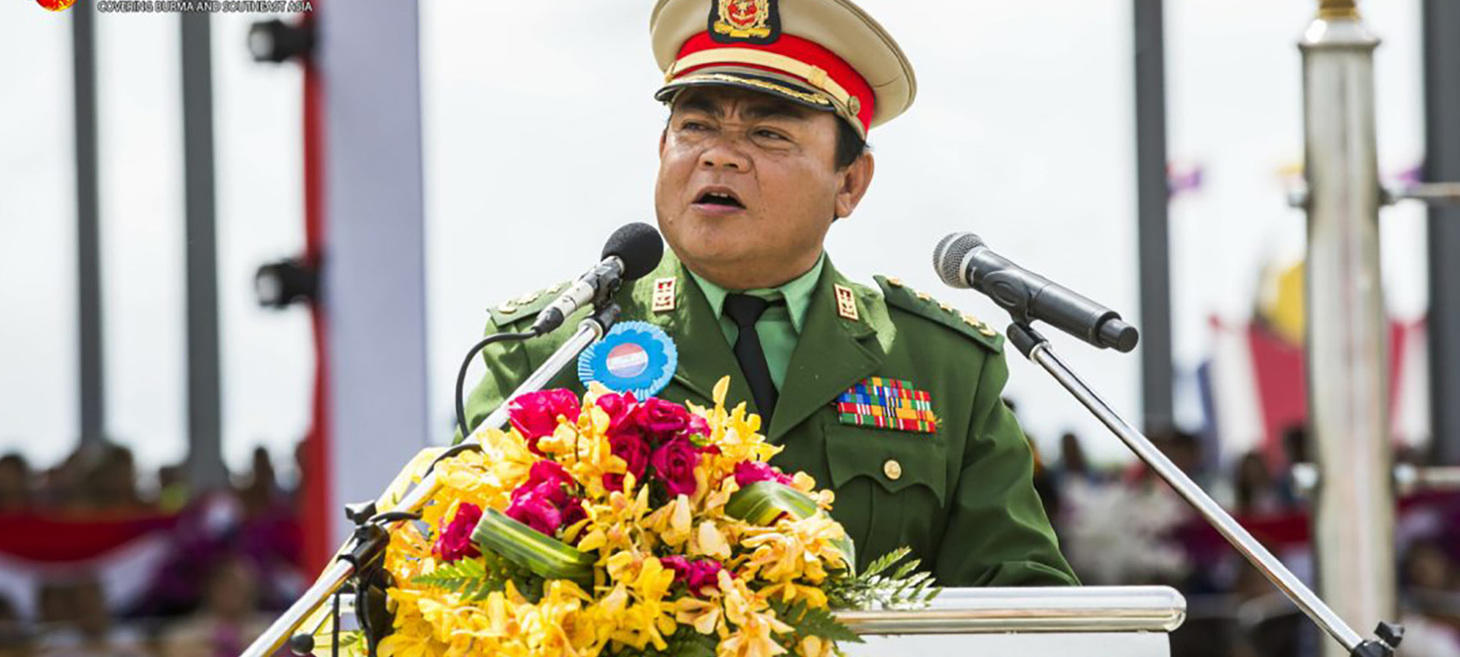
Myanmar Junta Ally Vows to Crackdown on Scam Gangs
The Karen Border Guard Force (BGF), a junta-allied militia in Myawaddy Township, Karen State, claims to be cracking down on illegal scam centers along the Thai border, addressing issues like human trafficking, fraud, torture, child labor, drug smuggling, and online scams. This action follows Thailand cutting off electricity, internet, and fuel supplies to five areas, including BGF-controlled territory, due to the threat these scam operations pose to Thai national security. The BGF denies direct involvement in the scams, stating they only lease land to businesses and have been working with the regime and international organizations to repatriate victims of trafficking. However, the scam centers have grown since the 2021 coup, with many relocating to Myawaddy after being displaced by Operation 1027 in northern Shan State. Despite Thailand's actions, some residents report that the scam compounds have generators, solar panels, and Starlink internet access, allowing them to continue operations.
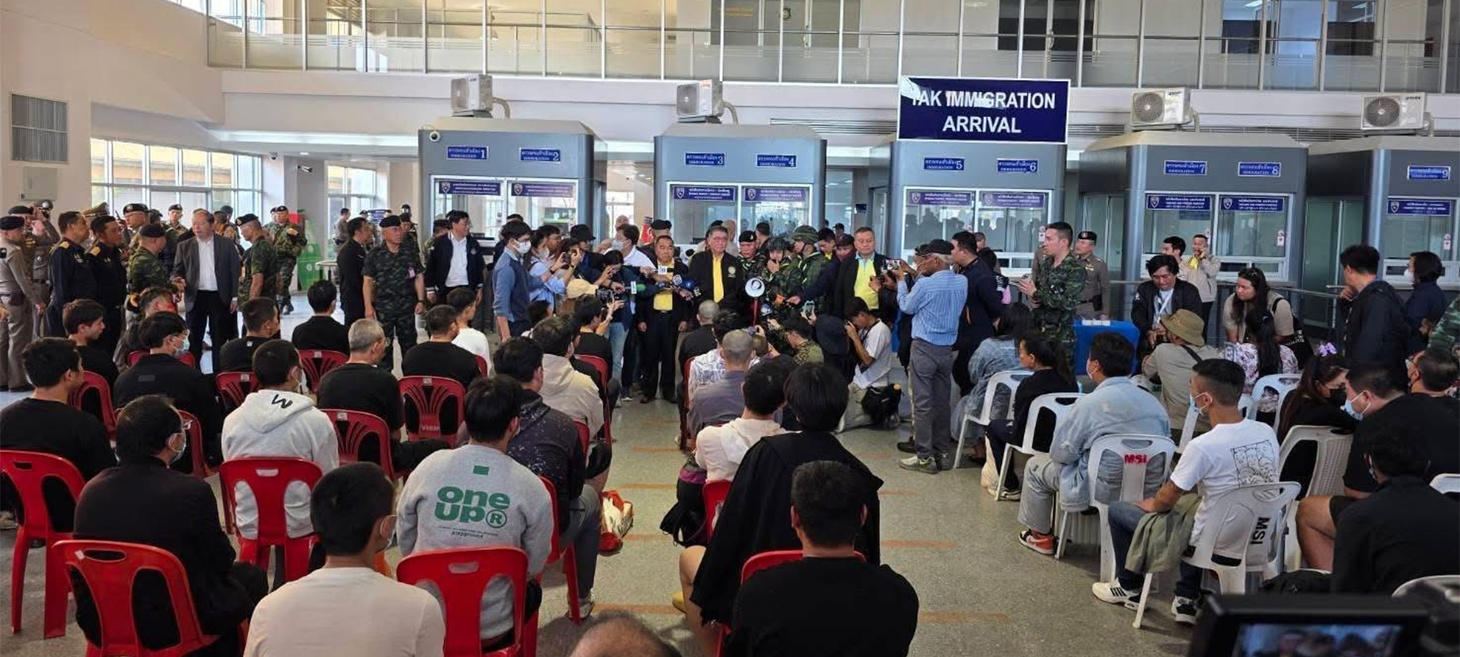
Myanmar Junta Hails Scam Center ‘Crackdown’
The Myanmar junta has announced a crackdown on online gambling and scam businesses in Mongyai Township, Shan State, detaining 81 people and five security guards. Raids on scam centers led to a firefight, resulting in casualties and the seizure of phones, laptops, and internet devices. 66 additional people, including Chinese and Vietnamese nationals, were also detained. The junta claims it will prosecute those involved and transfer foreign detainees to their home countries. Thailand has cut services to Myanmar border areas due to the scam threat, particularly targeting the Shwe Koko "new city" project run by a junta ally in cooperation with a Chinese national wanted by China. Since the 2021 coup, these scam centers have grown, relocating to areas like Myawaddy. The junta and Border Guard Force (BGF) have transferred 61 trafficking victims from online scam centers to Thai authorities and claim to be cooperating with international organizations to crack down on these operations.
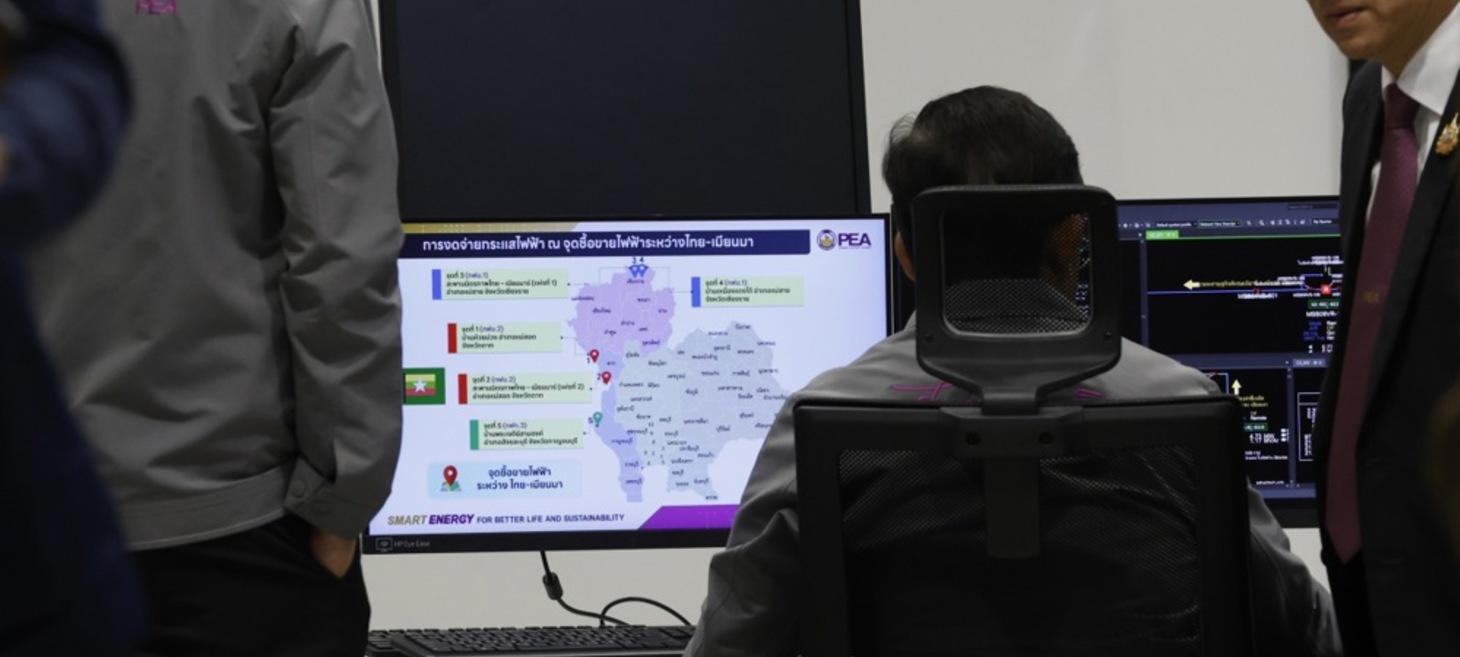
China’s Xi hails Thailand’s ‘strong’ action against scam centres
In February 2025, Chinese President Xi Jinping expressed gratitude to Thailand for its "strong measures" against scam centers that target Chinese citizens, which have proliferated along the Thai-Myanmar border and involve trafficked individuals. These centers have prompted fears among tourists. Xi Jinping emphasized the importance of continued security, law enforcement, and judicial cooperation between China and Thailand.
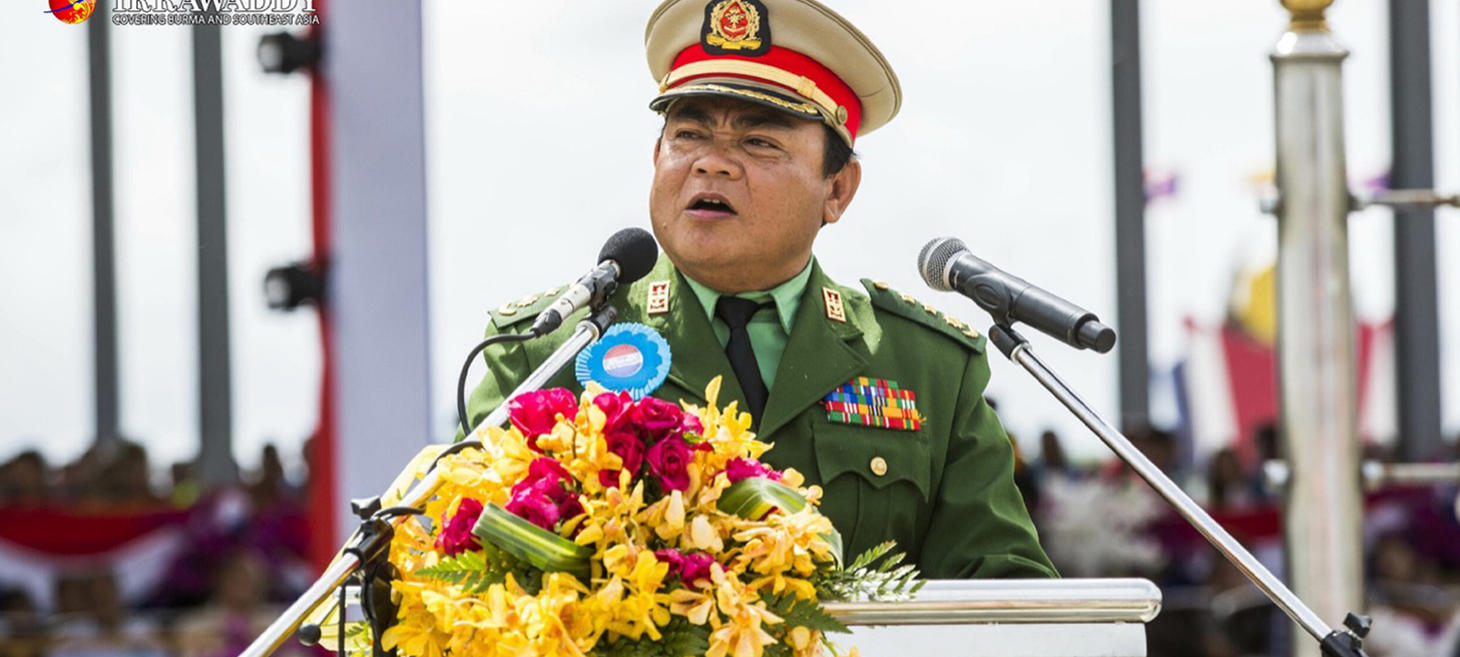
Karen Warlord Protests Against Thai Arrest Threat Over Scam Centers
Saw Chit Thu, a leader of a Karen militia allied with the Myanmar junta, has protested the Thai government's threat to arrest him over online scam operations in Myawaddy. Thailand's Department of Special Investigation (DSI) is seeking arrest warrants for Saw Chit Thu and other BGF leaders for human trafficking, specifically involving Indian nationals forced to work in call-center scams. These online scam centers have grown near the border since the 2021 coup, with many foreign nationals being trafficked through northern Thailand and forced to work for the scam gangs. Saw Chit Thu claims his group has combatted human trafficking and rescued victims, but the BGF has also been exposed for involvement in online scams, illegal casinos, and online gambling. Amidst pressure from China, Thailand has cut off essential services to areas controlled by Saw Chit Thu. The BGF claims it will form a task force to eliminate cyber scam networks in its controlled areas.
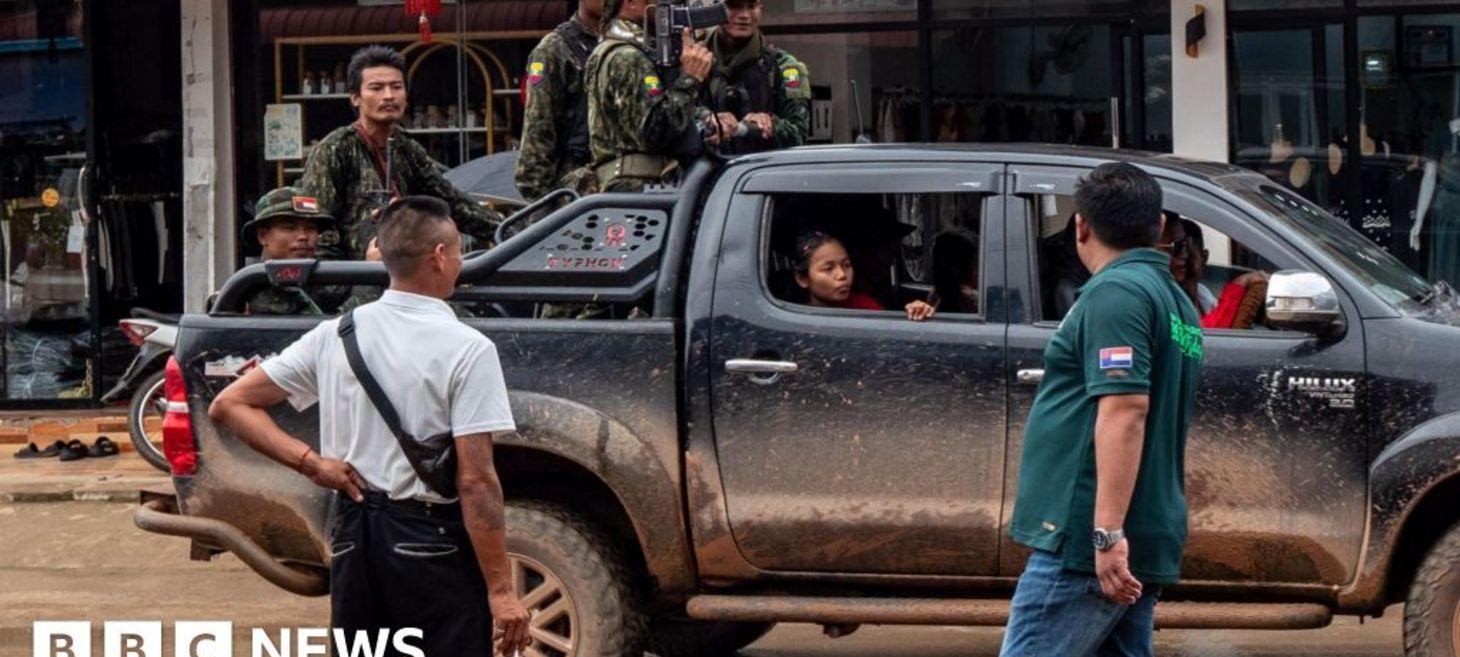
Myanmar's Shwe Kokko: Inside a city 'built on scams' - BBC News
Shwe Kokko, also known as Golden Raintree, is a city in Myanmar's Karen State that emerged rapidly from what was once a war-torn, impoverished area. Built by Yatai, a company owned by She Zhijiang, the city is envisioned as a resort destination for Chinese tourists and the super-rich, though it has become infamous as a hub for scams, money laundering, and human trafficking. She Zhijiang, currently imprisoned in Bangkok, aimed to escape his past involvement in scams and gambling through this project, but his ambition has attracted the scrutiny of Beijing, which seeks to eliminate fraud operations in the area. Despite Yatai's attempts to improve Shwe Kokko's image and claims that scam operations have ceased, evidence suggests that these activities persist, with local sources indicating that they are still the city's primary business. The city's economy is largely dependent on these illicit activities, as legitimate businesses find it unattractive due to high operating costs and the ongoing civil war. Despite Yatai's efforts to portray Shwe Kokko as a safe and developing city, its reputation is tainted by its association with criminal activities and the lawlessness of Karen State.
Economy
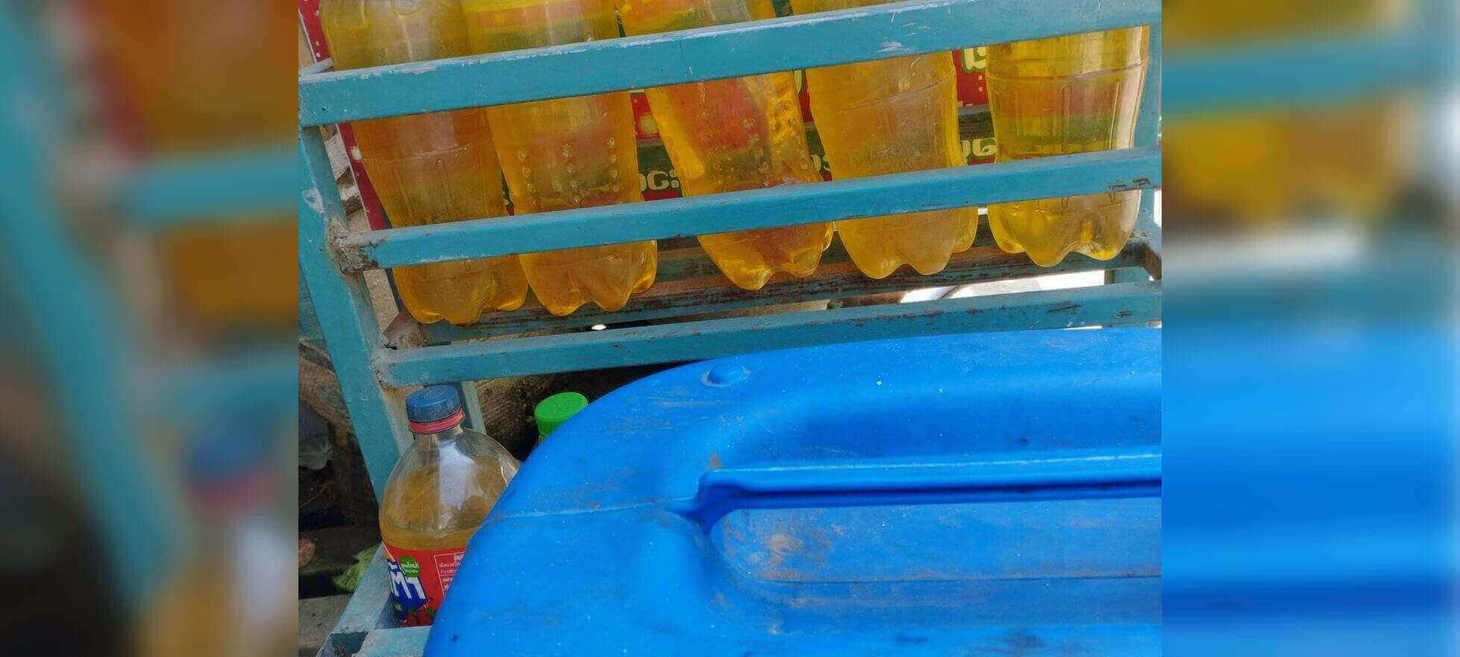
Fuel Prices Skyrocket in Eastern Shan State Following Thai Export Suspension
Following Thailand's suspension of fuel exports to Myanmar on February 5, 2025, eastern Shan State is experiencing skyrocketing fuel prices and shortages. This action by Thailand is intended to combat money laundering associated with online scams. Tachileik residents are particularly affected, with prices jumping from 30 baht to 100 baht (13,500 kyats) per liter, and some vendors selling fuel in containers at even higher prices. The crisis extends to neighboring townships like Mong Hsat and Mong Ton, leading to restrictions on container sales, including an arrest in Mong Hsat on February 5. This situation has arisen in parallel with discussions between the Thai Prime Minister and the Chinese President about addressing illicit financial activities, leaving residents to deal with inflated prices and dwindling supplies.
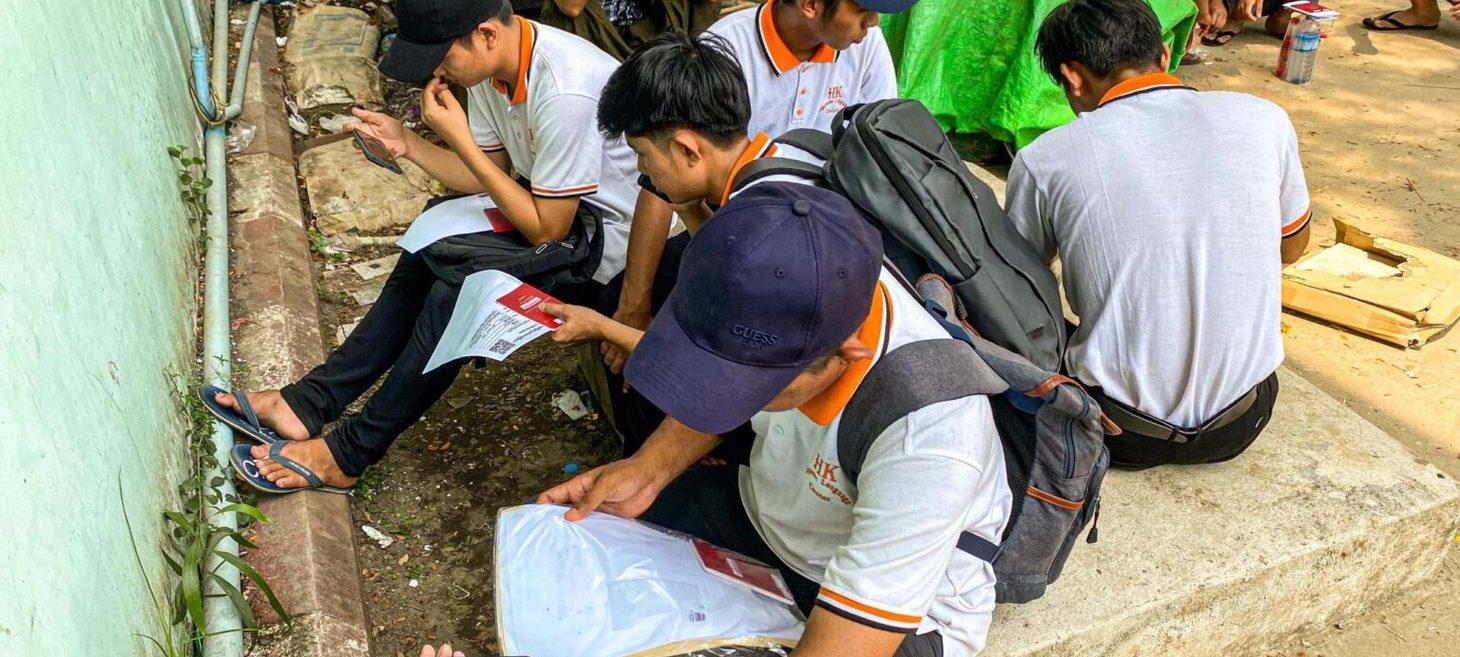
Singapore signals shift away from hiring Myanmar workers
Singapore's Ministry of Manpower has advised employment agencies to prioritize hiring migrant workers from countries other than Myanmar, due to travel restrictions and the ongoing state of emergency imposed by the Myanmar junta. This advisory may signal a shift away from hiring Myanmar nationals, potentially impacting those seeking jobs in Singapore. Concerns have arisen among Myanmar workers in Singapore regarding potential new restrictions and barriers for new workers aiming to enter the country. The advisory was issued on Tuesday, February 6, 2025.
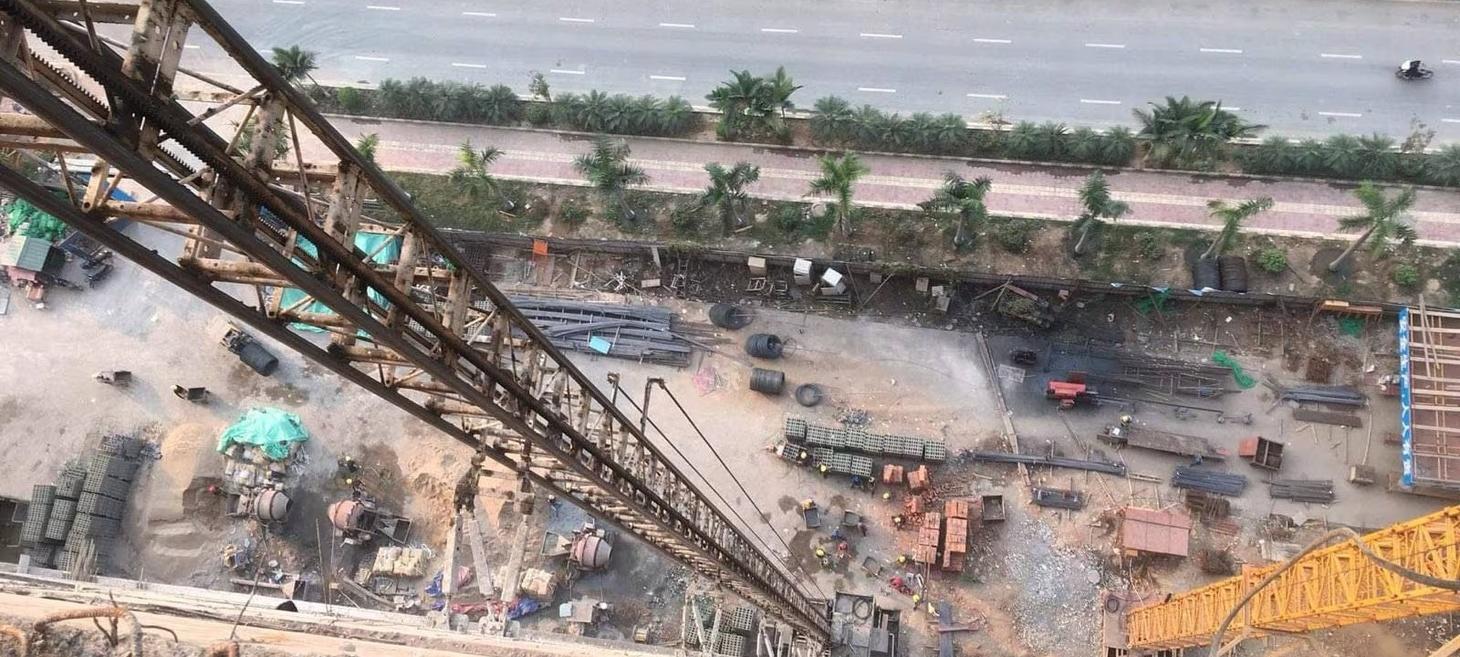
Myanmar junta expands mandatory remittance for migrant workers
The Myanmar junta is expanding its mandatory remittance policies to include Myanmar workers in Laos, requiring them to send home a quarter of their wages through official channels. This move is driven by the junta's need for foreign currency amidst an economy in freefall since the 2021 coup. Myanmar's economy has contracted by nearly 20% since the coup, with foreign investment dropping precipitously and 2024 GDP growth estimates being halved to 1%. Myanmar workers in Laos, who are employed in services, agriculture, and manufacturing, are concerned about how much of their money will be left after the deduction, in addition to a 2% tax they are required to pay to the Myanmar embassy. The civilian shadow National Unity Government (NUG) has denounced these rules as a systematic violation of workers' rights, stating that the military is in crisis and needs to replenish its funds. The exchange rate set by the junta is considered crippling, leaving families with insufficient funds.
Foreign Affairs

Elon Musk Calls for Closure of Radio Free Europe, Voice of America
Elon Musk has called for the shutdown of Radio Free Europe/Radio Liberty (RFE/RL) and Voice of America (VOA), two media organizations funded by the U.S. government. Musk agreed with a post on X by Richard Grenell, who criticized the two outlets, saying they are filled with far left activists and are a relic of the past. Musk stated that "Europe is free now" and "nobody listens to them anymore". Both RFE/RL and VOA receive funding from the US Congress through the US Agency for Global Media (USAGM). VOA has been in operation for over 80 years, providing news in 49 languages, including Burmese, to a weekly audience estimated at more than 362 million people around the world. RFE/RL reports in 27 languages to 23 countries reaching more than 47 million people every week. Musk has also criticized federal payments to other media organizations, advocating for significant reductions in federal spending, including the shuttering of USAID.
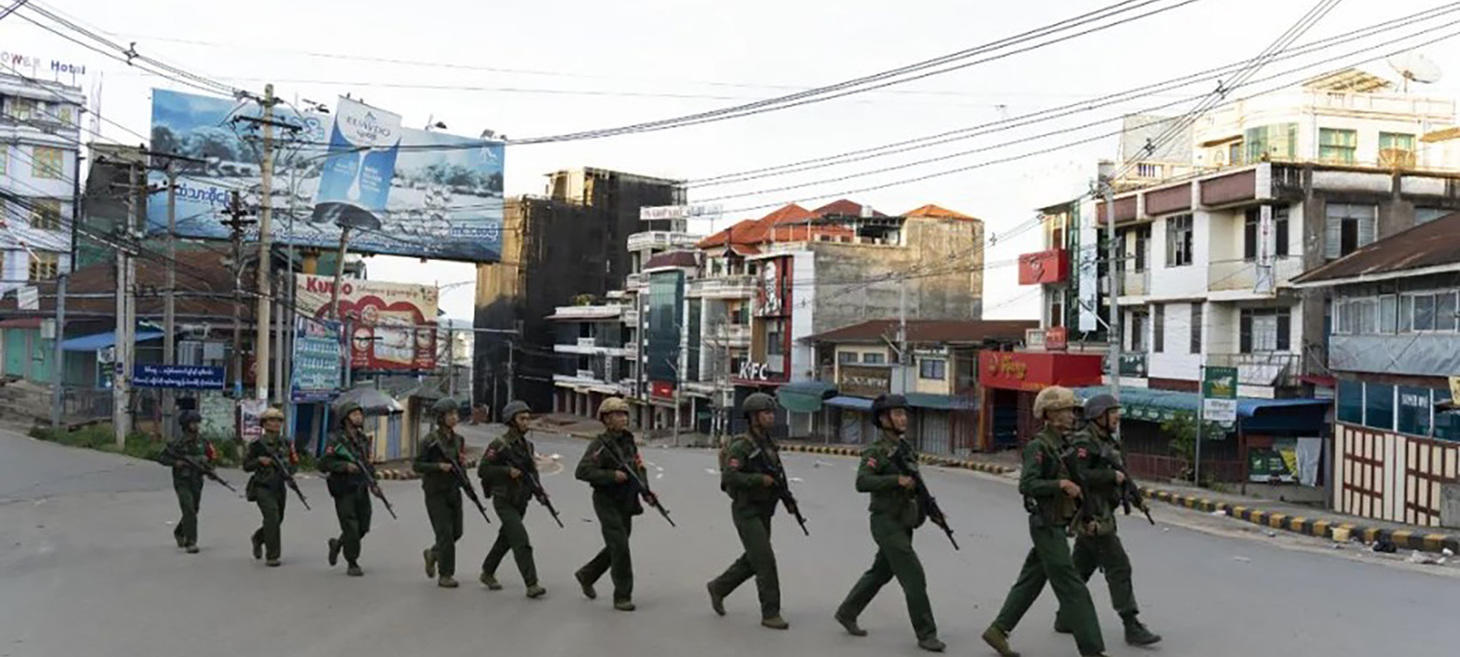
China Must Explain Defense of Myanmar Junta
In a significant blow to Myanmar's military regime, the Myanmar National Democratic Alliance Army (MNDAA) captured Lashio in August 2024, a strategic victory that demonstrated the military's vulnerability. While a ceasefire agreement was brokered in Kunming under Chinese mediation, proposing an MNDAA withdrawal from Lashio in June in exchange for autonomy over specific regions, neither side has confirmed this. The MNDAA's potential retreat from Lashio is controversial, considering the collaborative effort of multiple revolutionary forces in its capture. There are concerns that China's focus on economic interests and regional stability might lead to pressuring the MNDAA to return Lashio, which could damage the group's public support and betray its allies. The military is reportedly unwilling to accept the proposal unless Kokang troops withdraw from all the towns and Lashio to the former Kokang self-administered region east of the Salween River. The potential return of Lashio to the regime could be a setback for revolutionary momentum and endanger residents who collaborated with the MNDAA.
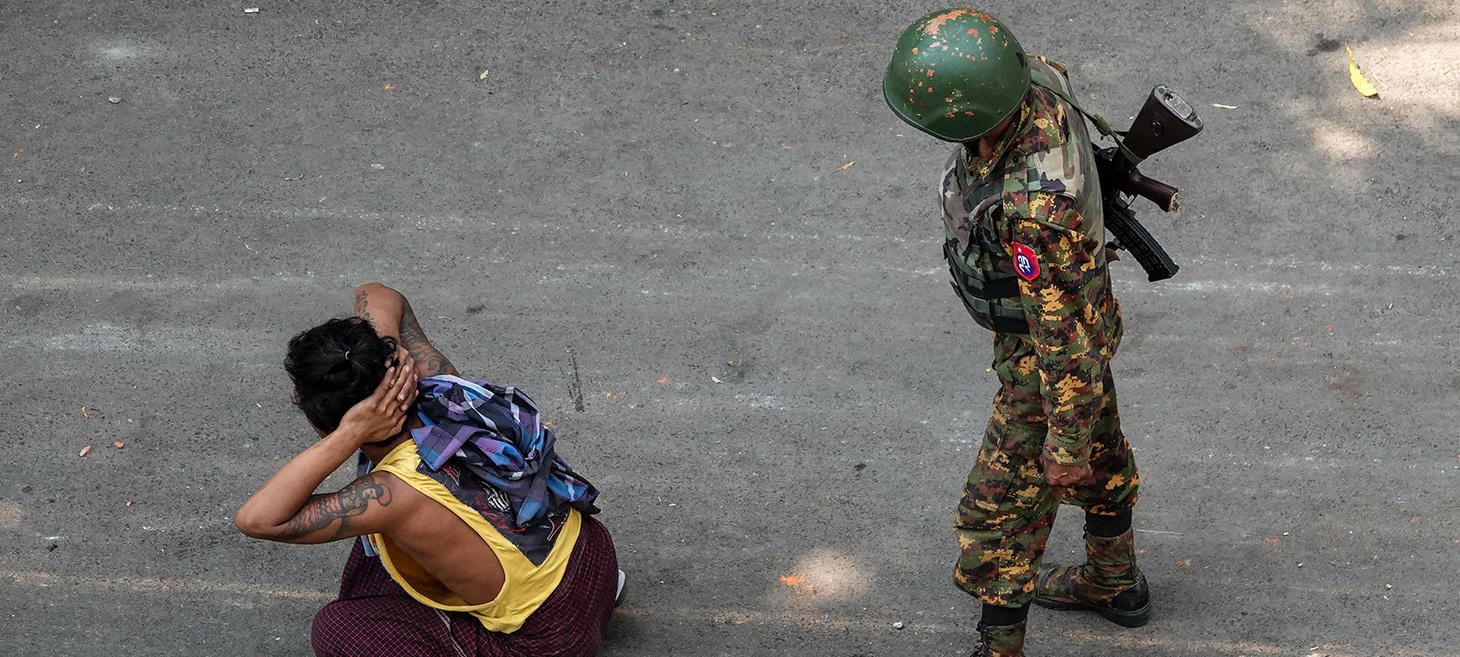
Trump Extends US National Emergency Declaration on Myanmar
On February 4, 2025, President Donald Trump extended the national emergency declaration regarding Myanmar for another year, citing the ongoing situation in the country as an "extraordinary threat" to the national security and foreign policy of the United States. This declaration, initially imposed by then President Joe Biden on February 10, 2021, was a response to the military coup and the subsequent actions of the Myanmar junta. The notice to Congress specifically mentioned the overthrow of the democratically elected government, unjust arrests, and the undermining of the rule of law. Daw Zin Mar Aung, the Foreign Minister of Myanmar’s National Unity Government (NUG), stated that this decision reflects the consistent approach of both Democratic and Republican parties concerning Myanmar. Since the coup in February 2021, the junta has killed over 6,200 people, including 718 children and 1,408 women, and arrested over 28,000 dissidents. In January 2025 alone, the junta killed over 170 people in aerial bombings of 40 towns. Furthermore, in May 2024, the US extended temporary protected status for Myanmar nationals until November 25, 2025, allowing them to remain in the United States due to unsafe conditions in their home country.
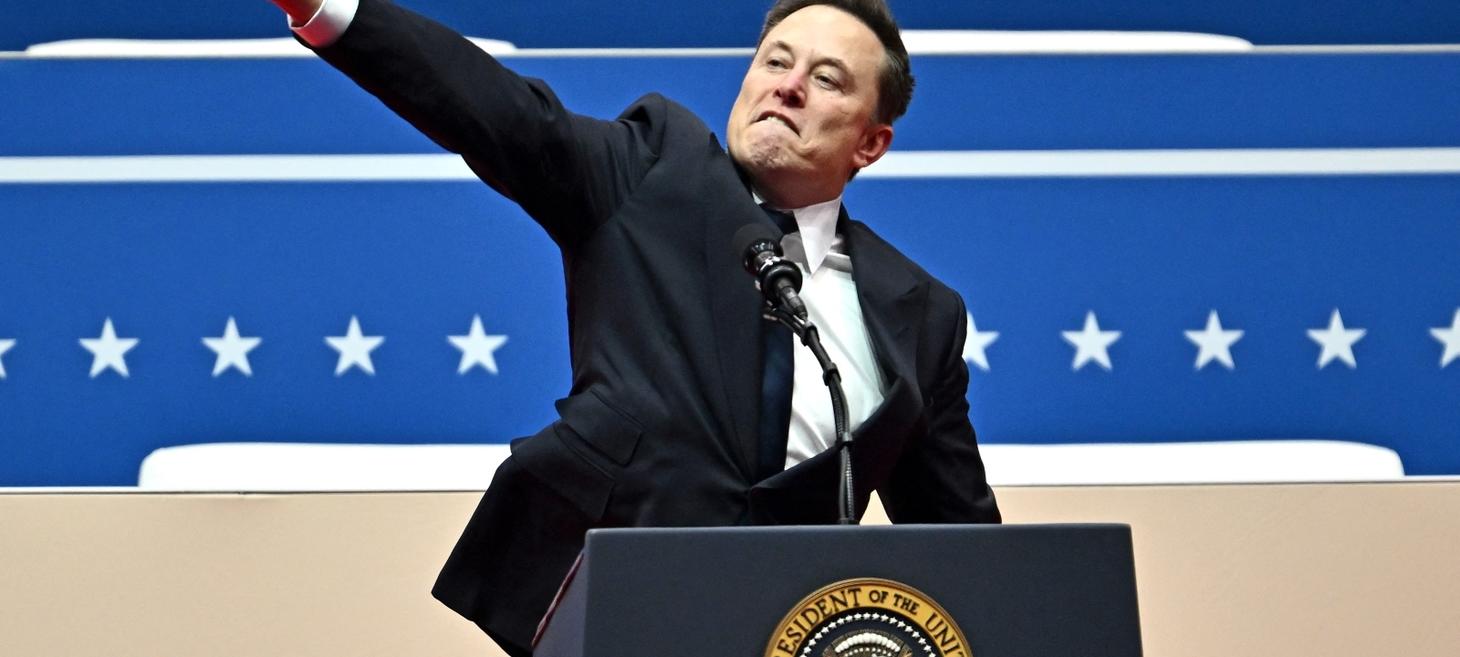
Musk and Trump show why the media matters
In February 2025, Wikileaks revealed that the United States Agency for International Development (USAID) had provided nearly half a billion dollars to Internews Network, an NGO that "worked with" 4,291 media outlets, produced 4,799 hours of broadcasts reaching 778 million people, and "trained" over 9,000 journalists. Elon Musk, a Trump ally, amplified this information, calling Internews a "literal state propaganda network" because it took money to "train journalists" and "tackle disinformation". Internews has indeed trained thousands of journalists and helped fund independent media outlets in Myanmar, and has helped to tackle disinformation, contributing to news coverage informing readers about the military regime’s abuses. Despite criticisms regarding bureaucracy and pass-through amounts, USAID support plays an important role in supporting independent journalism in Myanmar. Attacks on USAID highlight the importance of journalists in countering disinformation, as many claims made by Musk and others about USAID have been proven false.
General News
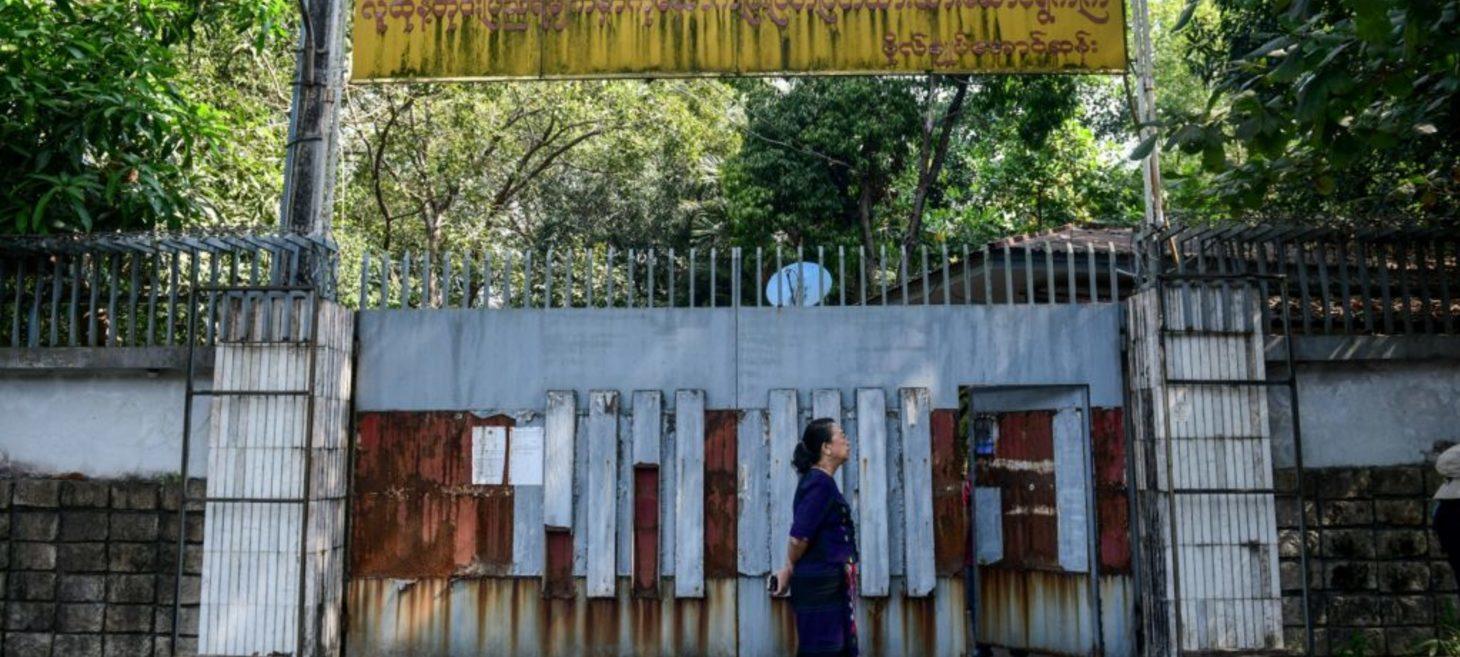
Bid to sell Aung San Suu Kyi’s mansion flops for third time
An attempt to auction Aung San Suu Kyi's lakeside mansion in Yangon failed for the third time, with no bids submitted. The two-story house, set on approximately 0.8 hectares, had a minimum price of US$140 million. The auction was conducted by junta-appointed officials following a court ruling that granted Aung San Suu Kyi's estranged brother, U Aung San Oo, ownership of half the property. Aung San Suu Kyi, who spent about 15 years under house arrest there, has been detained since the military seized power in February 2021. The failed sale reflects Myanmar's struggling economy, which has been impacted by civil war following the coup, making it difficult to find potential buyers for such an expensive property. Real estate agents estimate similar properties in Yangon's upscale areas might only be worth $1 million to $2 million. The house is historically significant as it was where Aung San Suu Kyi lived when she rose to prominence as a democracy leader. She is currently serving a 27-year prison sentence on various charges.
Humanitarian

Red tape is ‘killing people’ -Zoya Phan at ODI event
Zoya Phan, Programme Director of Burma Campaign UK, spoke at an ODI event on humanitarianism and human rights in Syria and Myanmar, addressing the urgent need for increased humanitarian aid and international pressure on the Burmese military. Since the military coup, the junta has been deliberately targeting civilians, resulting in a record high of three and a half million internally displaced people. Despite the exhaustion and challenges faced by the Burmese people, Zoya expressed optimism about the growing discussions on a future Burma without military influence.
Military
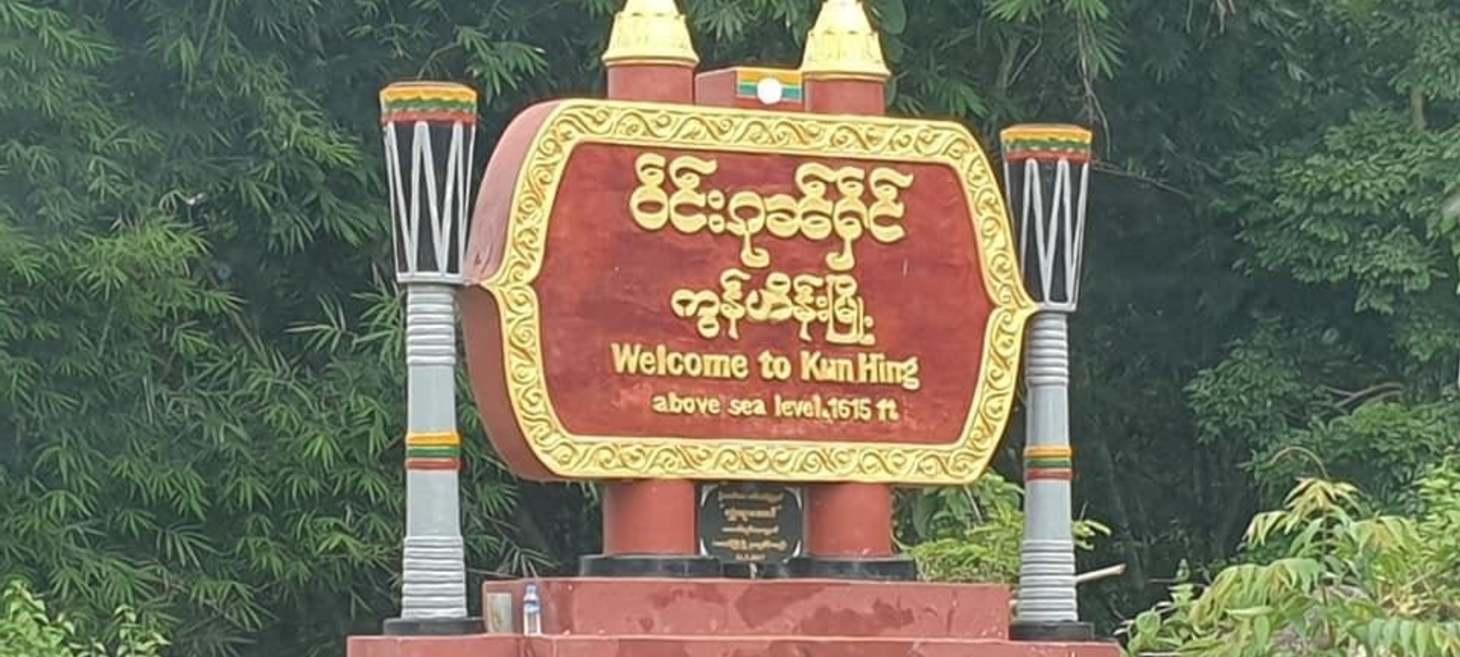
Myanmar Junta Imposes Heavy Financial Burdens on Kunhing Township Residents Under Dubious Pretexts
Residents of Kunhing Township in Shan State, Myanmar, are facing increased financial strain due to the military junta demanding payments for military expenses and service costs since mid-2024. Households are forced to pay between 30,000 and 70,000 kyats monthly, with some families paying over 100,000 kyats, despite struggling with rising living costs and political instability. In January 2025, a local junta commander collected additional sums, allegedly for the Restoration Council of Shan State (RCSS/SSA), which the RCSS/SSA has denied. The presence of armed groups like the RCSS/SSA and the Shan State Progress Party (SSPP/SSA) has destabilized the region, exacerbating hardships for civilians as the junta's financial demands deepen the humanitarian crisis. The international community is urged to address these exploitative practices and the deteriorating conditions in Shan State.
Sanctions

Joint letter calling for US sanctions on Myanma Economic Bank
A joint letter from Burmese civil society organizations urges the U.S. government to impose sanctions on the Myanma Economic Bank (MEB), following previous sanctions on Myanma Foreign Trade Bank (MFTB) and Myanma Investment and Commercial Bank (MICB). These previous sanctions disrupted the military's supply chains, causing them to rely more on MEB. Sanctioning MEB would reduce the military's ability to conduct attacks, with minimal adverse humanitarian impact, as few non-junta entities use MEB. Alternative arrangements can be made for civil servant pensions, taxes, fees, and sovereign debt repayments. The letter emphasizes that sanctioning MEB is a crucial step in a broader strategy to restrict the military's access to international weapons and financial support, creating space for the people of Burma to build democratic institutions and open channels for humanitarian aid.